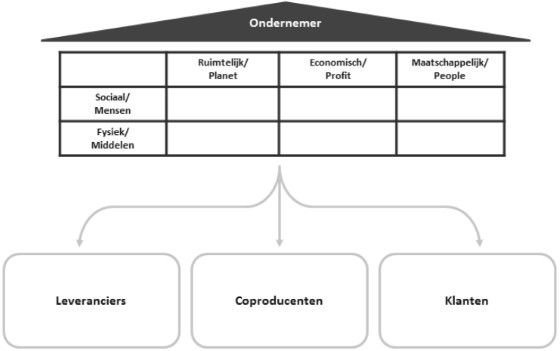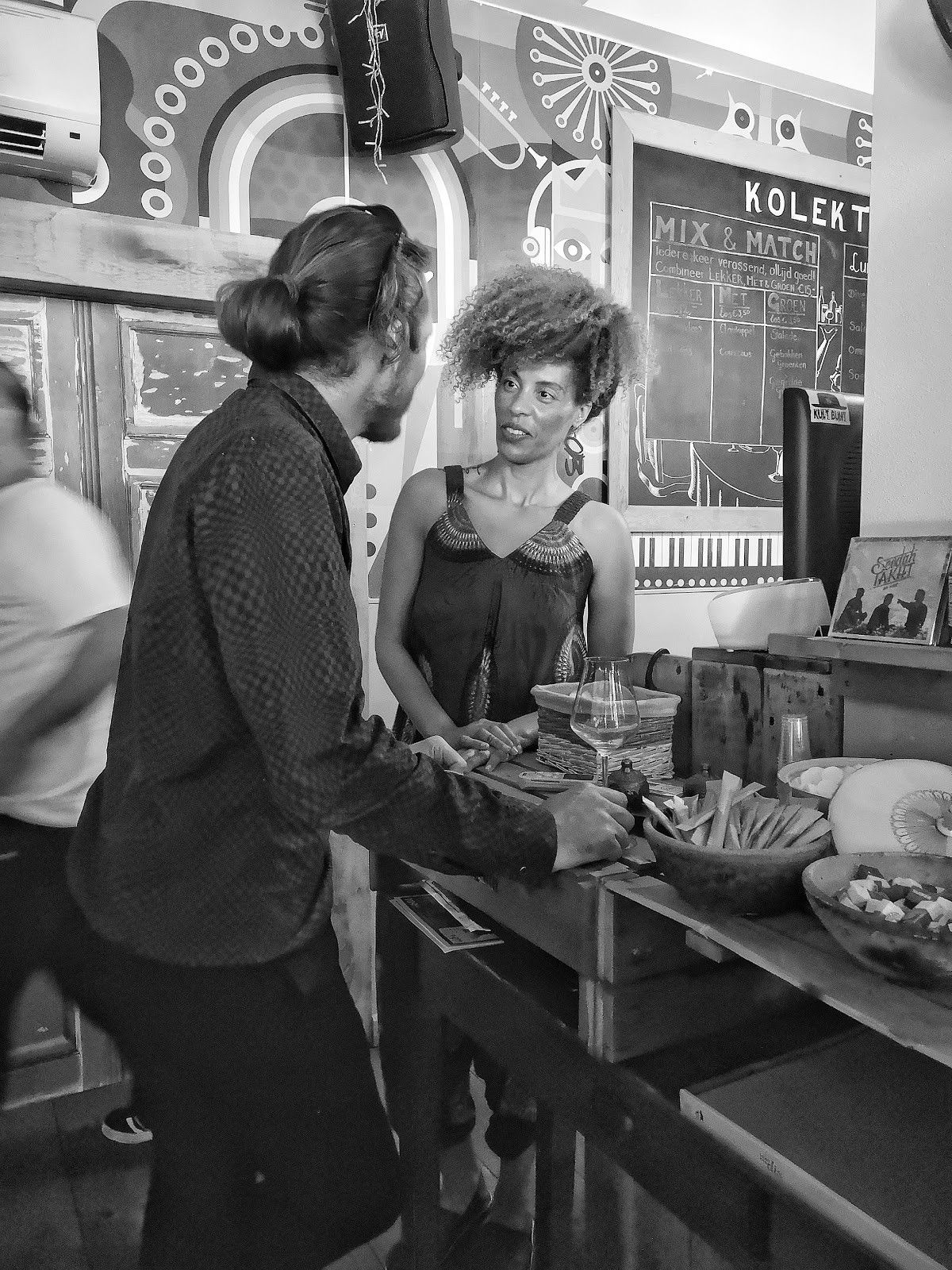Tussenheid 013
Tussenheid013 supports enterprising citizens with golden hearts who want to make the world a little more beautiful. With a core team of five people, they are constantly looking for the ideal mix of opportunities, views and interests in order to make an initiative possible and to bring out the best. We spoke to Sabine van Baal, who explains to us what Tussenheid does.
Sabine: "The shell around the core group consists of a network of deployable key figures / experts from citizens' initiatives, the municipality and civil society organisations with who we can save, to who we can refer, who participate in the expert meetings. With who knowledge can be shared and with whom networks can be initiated around the applicants. Tussenheid013 itself actively participates in relevant networks in the city. Tussenheid013 is housed in Station88 in the Spoorzone and is a member of Midpoint Center for Social Innovation (MCSI), connected to a network of innovative entrepreneurs, by means of a personal membership".
Core Roles
- Making citizens' initiatives and social enterprises more sustainable in the social domain. Key concepts: autonomous, connected and competent. Through advice and coaching on strategy, organisation, financing and local embedding.
- Supporting networks of initiatives that learn from each other and that together generate more meaning for the tilting vision of the district and the city.
- Give signals for system change.
- Spin in the web, an entity in the professional field, embedded by profiling and positioning ourselves, by connecting us with key figures who share the same vision.
Why?
"Region 013 has a large creative, social and entrepreneurial climate in which more and more citizens want to make a meaningful contribution to the quality of life in our city. We also call them Stadsmakers! This is good news because these city-makers contribute to strengthening social cohesion and to the socially innovative culture that characterises our city. In addition, it is a national task for us as citizens to become more involved. However, the final implementation and embedding of this participation and of the (citizens') initiatives that are conceived by the involved citizens, often turns out to be still complicated.
Processes slow down and stagnate because people end up in the hornets' nest of (internal) politics, regulations and excessive bureaucracy and because they often underestimate the importance of a correct balance between the values of support, impact and legitimacy.
How?
Many of these city-makers are faced with similar issues. Frequently asked questions are:
- How do we get from idea to strategy and feasible plan?
- What earning model is possible and what funding is available?
- How do we organise ourselves?
- How do we staff ourselves with sufficient competencies and available time?
- How do we execute (parts of) our plan?
- What embedding in networks do we need?
- How do we connect with the community?
- How do we create sufficient relationships and support among relevant social parties and the government?
- How do we safeguard our autonomy and self-determination?
How does Intermediacy help?
The sustainability model serves as a stepping stone within the services of Tussenheid. This model is based on the well-known P's of People, Planet, Profit and is based on the conviction that most institutions are organised in a compartmentalised way and no longer look at a particular issue holistically.

"Through the methods that have been devised around this sustainability model, we ensure that they look at initiatives in a "decompartmentalised" way and strengthen their entrepreneurship and local embedding. They do this by looking integrally at strategies, the structure, culture, finances and networks and their mutual coherence.
By thinking along strategically and conceptually, they prevent creative ideas from getting stuck or enthusiasm from turning into disappointment and cynicism. We avoid bottlenecks by uniting elements from the spatial, economic and social environments for each initiative. In short, we are looking for the ideal mix of opportunities, views and interests in order to make an initiative possible and to let it come into its own in the best possible way."
What?
Tussenheid013 sees an integrated approach, good process management, sharing knowledge with experts and learning within networks as the most important building blocks for sustainability. Initiatives that have come along in recent years and that have made an impact include:
Anders Bouwen, Prospects@work, Stadscamping, Stadstuinderij, Ruilwinkels, ’T Valleike, Stadsbus, Tonnekes Rijdende Winkel, Blije Pootjes, Stichting Nettoleven, Goed Werk, De Krachtcentrale, In de Boomtak, Living Museum, Weev, Boilr’s Hup, Verdien je Tickets, Social Energy, Stichting Move, Kolektivo, Wijkraden Bouwmeesterbuurt, Goirke Hasselt, en Bomenbuurt, wijkraad Groeseind- Hoefstraat, Stoom013, Wereldpodium, Reeshof&Co, Stichting t Anker, Stichting AS, Tante Pollewop, Nextgen013 en Solmaz Voetbalacademie.
Click here for contact with Tussenheid.
